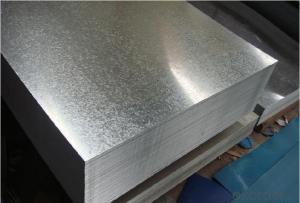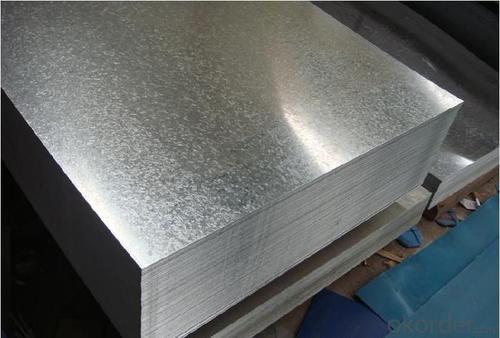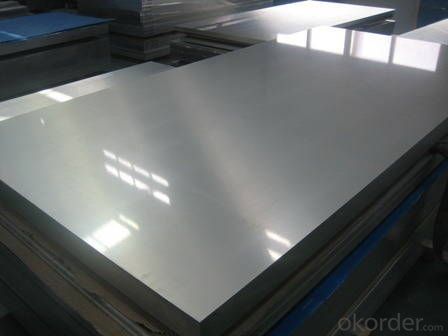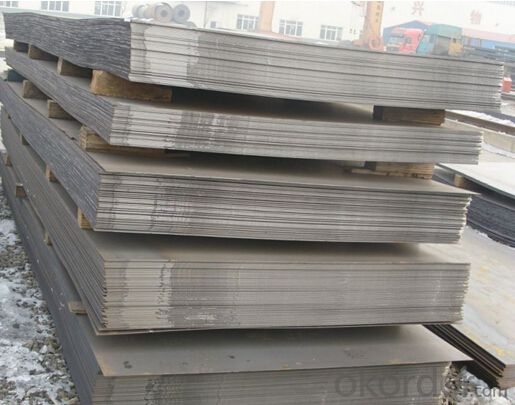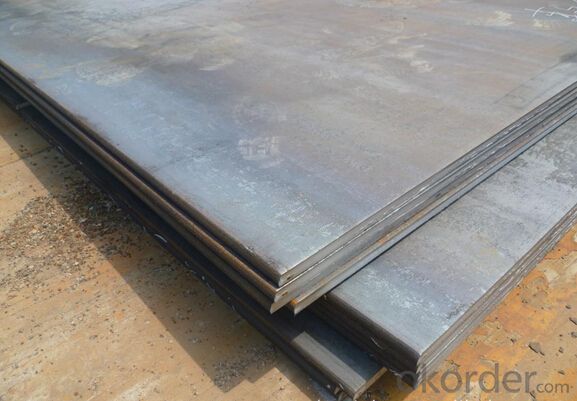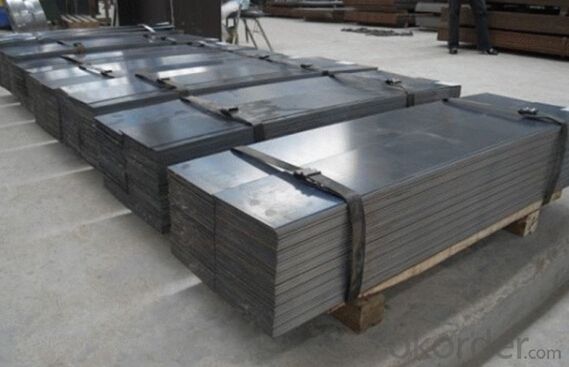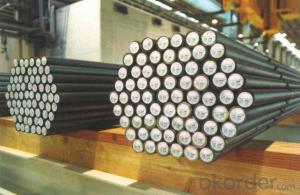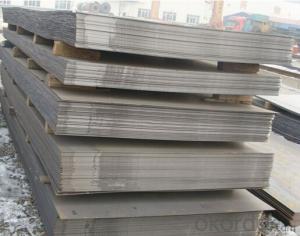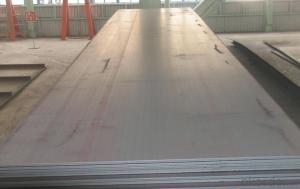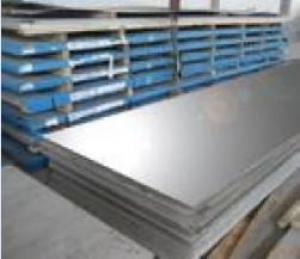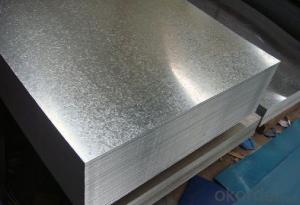Grade Z40-Z280 Galvanized Steel Sheet Plate
- Loading Port:
- Tianjin
- Payment Terms:
- TT OR LC
- Min Order Qty:
- 5 m.t.
- Supply Capability:
- 10000 m.t./month
OKorder Service Pledge
OKorder Financial Service
You Might Also Like
Specification
Grade Z40-Z280 Galvanized Steel Sheet Plate with Low Prices low
Grade Z40-Z280 Galvanized Steel Sheet Plate with Low Prices low
Grade | DX51D, SGCC, CGCC |
Thickness | 0.15mm-1.5mm |
Width | 600mm-1500mm(914/1219/1250 are available) |
Standard | JIS G3312, ASTM,GB/T1275 |
Certificate | ISO9001.ISO14001.OHSAS18001 |
Length | As per requests |
Zinc Coating | 40g-275g/m2 |
Lacquer Coated | 20-25 microns/5-15 microns |
Coil ID | 508mm/610mm |
Coil Weight | normally 3-10mt or as your requirement |
Supply ability | 200,000Mt/year (MOQ:25Mt) |
Color | RAL No. |
Price terms | FOB,CFR,CIF |
Payment terms | L/C,T/T |
Deliver time | 30days after received deposit or L/C |
Packing | Standard exporting package |
steel strip Water proof paper, metal covers, | |
Application | Corrugated roofing,outside building, |
boating building,car producing | |
household appliance | |
Main market | Southeast Asia , the EU, Russia, Ukraine , Latin America and other countries and Regions |
Grade Z40-Z280 Galvanized Steel Sheet Plate with Low Prices low
Thickness | Width | Length of plate | Inner diameter of coil |
0.18-1.2mm | 800/914/1000/1200/1219/1250mm | 1000-6000mm | 508mm/610mm |
Coated Mass: | |||
Available Coated Mass(g/m^2) | Base plate | Available Coated Mass(g/m^2) | |
60,80, 100, 120, 160, 180 | Galvanized Steel | 60,80, 100, 120, 160, 180 | |
50, 70, 150 | Galvalume Steel | 50, 70, 150 |
Painting | Item | Code | |
Polyester | PE | ||
High-durability polyester | HDP | ||
Silicon modified polyesters | SMP | ||
Polyvinylidene fluoride | PVDF | ||
Easy-Cleaning | — | ||
Painting Thickness | Top side: 20±5microns; | ||
Bottom side: 5~7microns. | |||
Color System | Produce according to RAL Color System or as per buyer’s color sample. | ||
Painting structure | Top surface | Bottom surface |
|
Primer coating | No coating | 1/0 | |
Primer coating | Primer coating | 1/1 | |
Primer coating + Finish coating | No coating | 2/0 | |
Primer coating + Finish coating | Primer coating or single back coating | 2/1 | |
Primer coating + Finish coatin | Primer coating + Finish back coating | 2/2 | |
Grade Z40-Z280 Galvanized Steel Sheet Plate with Low Prices low
CNBM International Corporation is the most import and export platform of CNBM group(China National Building Material Group Corporation) ,which is a state-owned enterprise, ranked in 270th of Fortune Global 500 in 2015.
With its advantages, CNBM International are mainly concentrate on Cement, Glass, Iron and Steel, Ceramics industries and devotes herself for supplying high quality series of refractories as well as technical consultancies and logistics solution.
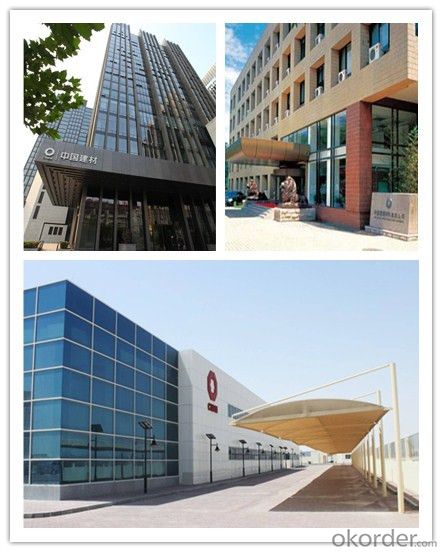
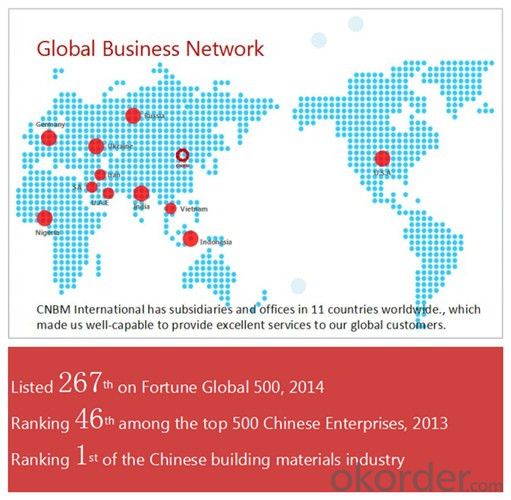
Grade Z40-Z280 Galvanized Steel Sheet Plate with Low Prices low
Packaging Detail | Sea worthy packing /as per customer's packing instruction |
Delivery Detail | 15 ~ 40 days after receiving the deposit |
Products Show
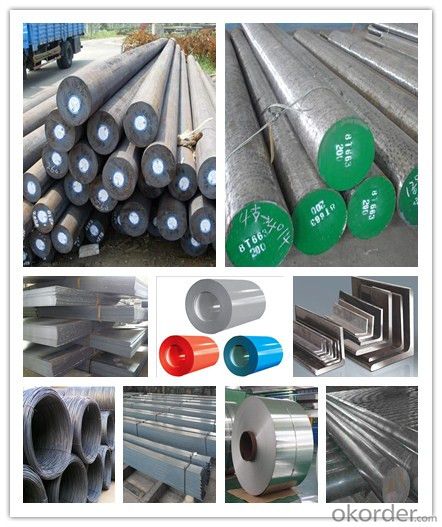
FAQ:
Are you a trading company or manufacturer? | Manufacturer |
What’s the MOQ? | 3 metric ton |
What’s your delivery time? | 15-35 days after downpayment received |
Do you Accept OEM service? | Yes |
what’s your delivery terms? | FOB/CFR/CIF |
What's the Payment Terms? | 30% as deposit,70% before shipment by T/T |
Western Union acceptable for small amount. | |
L/C acceptable for large amount. | |
Scrow ,Paybal,Alipay are also ok | |
Why choose us? | Chose happens because of quality, then price, We can give you both. Additionally, we can also offer professional products inquiry, products knowledge train (for agents), smooth goods delivery, excellent customer solution proposals. |
What's your available port of Shipment? | Main Port, China |
What’s your featured services? | Our service formula: good quality+ good price+ good service=customer's trust
|
Where are your Market? | Covering more than 160 countries in the world |
- Q: What are the different methods of surface texturing for special steel?
- Surface texturing for special steel can be achieved through various methods, each with its own unique benefits and applications. Among the most commonly used techniques are: 1. Shot blasting: By propelling small metal or ceramic particles at high speeds onto the steel surface, this process effectively eliminates impurities and contaminants. It results in a textured finish that enhances adhesion for coatings and paints. 2. Acid etching: In this method, the steel is submerged in an acidic solution that selectively removes a thin layer of the surface, creating intricate patterns or designs. Acid etching enables the achievement of detailed textures on the steel surface. 3. Mechanical grinding: This technique involves physically grinding and removing material from the steel surface using abrasive tools. The texture achieved can range from smooth to rough, depending on the grit size of the grinding tool. 4. Laser texturing: An advanced approach, laser texturing employs laser technology to produce precise and intricate patterns on the steel surface. This method offers exceptional precision, repeatability, and enables the creation of complex designs that may be challenging to achieve with other methods. 5. Electrochemical etching: By utilizing an electric current, this process selectively dissolves the steel surface, resulting in a textured pattern. Electrochemical etching allows for consistent and controlled textures on the steel surface. Each surface texturing method has its own advantages and limitations. The choice of technique depends on factors such as the desired texture, the specific properties of the special steel, and the intended application.
- Q: What is the role of special steel in the defense industry?
- The unique properties and capabilities of special steel are critical to the defense industry. Its primary function is to provide strength and durability to military equipment, including tanks, armored vehicles, naval vessels, and aircraft. These steels are designed to withstand extreme conditions such as high impact and ballistic resistance, ensuring the safety and protection of military personnel. Special steel also plays a significant role in the production of cutting-edge weaponry. It is used to manufacture firearms, missiles, and artillery systems, offering the necessary strength, hardness, and corrosion resistance. These steels allow for the precise manufacturing of complex weapon systems, ultimately improving their performance, accuracy, and reliability. Additionally, special steel contributes to the development of advanced communication and electronics technologies. Steel alloys with specific magnetic properties are utilized in the production of radar systems, satellite components, and other electronic devices crucial for military surveillance, intelligence, and communication purposes. These steels enable efficient signal transmission and reception, enhancing the overall capabilities of defense systems. In conclusion, special steel is indispensable in the defense industry due to its unique properties and capabilities. It serves as the foundation for military equipment, enhances the performance of weapons, and enables the development of advanced communication and electronics technologies. By utilizing special steel, the defense industry ensures the safety, effectiveness, and technological superiority of military operations.
- Q: Is special steel suitable for manufacturing cutting tools?
- Yes, special steel is highly suitable for manufacturing cutting tools. Special steel refers to steel that has been specifically designed and processed to possess exceptional properties such as high hardness, toughness, and wear resistance. These characteristics make special steel an ideal choice for cutting tools as they enable the tools to withstand the high stresses and pressures involved in cutting operations. The hardness of special steel ensures that cutting tools can maintain their sharpness for a longer period of time, leading to improved cutting performance and efficiency. Additionally, the toughness of special steel allows cutting tools to resist chipping, cracking, or breaking during use, enhancing their durability and longevity. Furthermore, the wear resistance of special steel ensures that cutting tools can withstand the abrasive forces encountered during cutting operations without significant loss of material or deterioration. This helps to maintain the accuracy and precision of the cutting tools over time. Moreover, special steel can be tailored to meet specific requirements for different cutting applications. For example, high-speed steel (HSS) is a type of special steel that is particularly suitable for cutting tools used in high-speed machining operations. HSS possesses excellent heat resistance and can retain its hardness even at elevated temperatures. In conclusion, special steel is highly suitable for manufacturing cutting tools due to its hardness, toughness, wear resistance, and ability to be customized for specific cutting applications. These properties enable cutting tools to deliver optimal cutting performance, durability, and accuracy.
- Q: What are the thermal properties of special steel?
- Special steels are highly sought-after in various applications due to their unique thermal properties. A key property of special steel is its exceptional thermal conductivity, enabling efficient heat transfer and dissipation. This characteristic renders special steel perfect for heat exchangers, facilitating effective heat transfer between fluids. Moreover, special steel boasts a high melting point, ensuring its structural integrity even under extreme temperatures. Consequently, it finds suitability in applications that involve exposure to extreme heat, such as furnaces or aerospace engines. Additionally, special steel exhibits superb thermal expansion properties, expanding and contracting consistently with temperature changes. This minimizes the risk of warping or cracking, which is crucial in applications requiring dimensional stability, such as precision instruments or high-temperature machinery. Furthermore, special steel possesses excellent resistance to thermal fatigue. It can endure repeated heating and cooling cycles without developing cracks or weakening. This property proves highly advantageous in applications subjected to cyclic thermal loading, such as automotive engine components or turbine blades. In conclusion, special steel offers high thermal conductivity, a high melting point, exceptional thermal expansion properties, and resistance to thermal fatigue. These desirable thermal properties make it a preferred choice across various industries, including automotive, aerospace, energy, and manufacturing, where thermal performance and durability are paramount.
- Q: How does special steel perform in hydrogen embrittlement conditions?
- Special steel, also known as high-strength steel or alloy steel, typically exhibits excellent resistance to hydrogen embrittlement conditions. Hydrogen embrittlement is a phenomenon in which hydrogen atoms invade the metal's lattice structure, causing it to become brittle and prone to fractures under stress. Due to their unique composition and microstructure, special steels are designed to withstand harsh environments, including hydrogen embrittlement conditions. These steels often contain alloying elements such as nickel, chromium, and molybdenum, which enhance their resistance to hydrogen-induced cracking. The presence of these alloying elements in special steel promotes the formation of protective oxide layers on the steel's surface, which act as a barrier to prevent hydrogen atoms from diffusing into the metal matrix. Additionally, these elements can trap and bind hydrogen atoms, reducing their mobility and minimizing their detrimental effects on the steel's mechanical properties. Furthermore, special steels are often subjected to various heat treatments and processing techniques, such as quenching and tempering, to further enhance their resistance to hydrogen embrittlement. These processes help refine the steel's microstructure, improving its strength, toughness, and ductility while minimizing the potential for hydrogen-induced cracking. Overall, special steel demonstrates superior performance in hydrogen embrittlement conditions compared to standard steels. Its unique composition, microstructure, and processing techniques make it highly resistant to the detrimental effects of hydrogen atoms, ensuring the structural integrity and reliability of components and structures operating in hydrogen-rich environments.
- Q: What are the different magnetic grades of special steel?
- Various applications commonly utilize different magnetic grades of special steel. Some well-known magnetic grades include: 1. Soft Magnetic Materials: These special steel grades possess high magnetic permeability and low coercivity. They are ideal for applications requiring strong magnetic induction, such as transformers, electric motors, and magnetic cores for electrical devices. 2. Martensitic Stainless Steels: In their hardened state, these special steel grades exhibit a high magnetic permeability. They are commonly employed in cutlery, tools, and specific automotive components. 3. Ferritic Stainless Steels: Although their magnetic permeability is lower compared to martensitic stainless steels, these special steel grades are still magnetic. They find application in automotive exhaust systems, decorative trim, and appliances. 4. Duplex Stainless Steels: These special steel grades have a mixed microstructure of austenite and ferrite, resulting in a magnetic response. They are renowned for their exceptional corrosion resistance and are utilized in chemical processing equipment and offshore oil and gas platforms, where both strength and corrosion resistance are crucial. 5. Austenitic Stainless Steels: In their annealed state, these special steel grades are non-magnetic. However, slight magnetism can be observed when they undergo cold working or contain specific alloying elements. Austenitic stainless steels are widely used in food processing equipment, architectural structures, and medical devices. It is important to remember that the presence or absence of magnetism in special steel grades can vary depending on factors such as composition, heat treatment, and processing. Therefore, it is essential to consider the specific requirements of an application when selecting the appropriate magnetic grade of special steel.
- Q: What are the main applications of special steel in the food packaging industry?
- Special steel is widely used in the food packaging industry due to its various applications. It is primarily utilized in the production of food cans, closures, and other packaging materials. Special steel offers excellent corrosion resistance, ensuring the preservation and safety of the packaged food. It also provides high strength and durability, maintaining the integrity of the packaging during transportation and storage. Additionally, special steel can be easily formed into different shapes and sizes, allowing for versatile packaging designs. Overall, the main applications of special steel in the food packaging industry include ensuring food safety, promoting product longevity, and enabling creative packaging solutions.
- Q: How does special steel contribute to the manufacturing aftermarket industry?
- Special steel plays a significant role in the manufacturing aftermarket industry by offering enhanced performance, durability, and reliability in the production of various components and equipment. One of the key contributions of special steel is its ability to withstand extreme conditions, such as high temperatures, corrosive environments, or heavy loads. This makes it an ideal material for manufacturing critical parts used in industries like automotive, aerospace, energy, and machinery. In the manufacturing aftermarket industry, special steel is commonly used in the production of replacement parts for machinery or equipment that have become worn out or damaged over time. The use of special steel ensures that these replacement parts possess the necessary strength and resilience to meet the original equipment manufacturer (OEM) specifications. Furthermore, special steel allows for the development of innovative designs and the production of more efficient and lightweight components. This helps in improving the overall performance of the equipment, reducing energy consumption, and enhancing productivity. For example, in the automotive industry, special steel is used to manufacture lightweight engine components, resulting in improved fuel efficiency and reduced emissions. Moreover, the use of special steel in the manufacturing aftermarket industry contributes to the reduction of maintenance and downtime costs. By using high-quality steel, the longevity of the replacement parts is increased, reducing the frequency of repairs or replacements. This leads to a decrease in production downtime and associated costs, as well as improving the overall reliability of the equipment. Additionally, special steel offers a wide range of customization options, enabling manufacturers to tailor the material properties to specific requirements. This flexibility allows for the development of unique solutions and the production of specialized components that meet the demands of various industries. It also enables manufacturers to address specific challenges related to wear resistance, hardness, or toughness, which are crucial factors in the aftermarket industry. In conclusion, special steel contributes significantly to the manufacturing aftermarket industry by providing enhanced performance, durability, and reliability to replacement parts. Its ability to withstand extreme conditions, enable innovative designs, reduce maintenance costs, and offer customization options makes it an indispensable material in the production of components and equipment in various industries.
- Q: What are the requirements for special steel used in marine applications?
- Special steel used in marine applications must meet certain requirements to ensure its durability and performance in the harsh marine environment. These requirements typically include high corrosion resistance to withstand exposure to saltwater, excellent strength and toughness to withstand extreme forces and impacts, good weldability for ease of fabrication and maintenance, and low magnetic permeability to avoid interference with electronic equipment. Additionally, the steel must be able to withstand fluctuating temperatures and be resistant to fatigue and stress corrosion cracking to ensure long-term reliability in marine applications.
- Q: Can special steel be coated or plated?
- Yes, special steel can be coated or plated. Coatings or platings are often applied to special steel to enhance its corrosion resistance, improve its appearance, or provide additional properties such as increased hardness or lubricity. These coatings can be achieved using various methods such as electroplating, hot-dip galvanizing, powder coating, or physical vapor deposition.
Send your message to us
Grade Z40-Z280 Galvanized Steel Sheet Plate
- Loading Port:
- Tianjin
- Payment Terms:
- TT OR LC
- Min Order Qty:
- 5 m.t.
- Supply Capability:
- 10000 m.t./month
OKorder Service Pledge
OKorder Financial Service
Similar products
Hot products
Hot Searches
Related keywords
